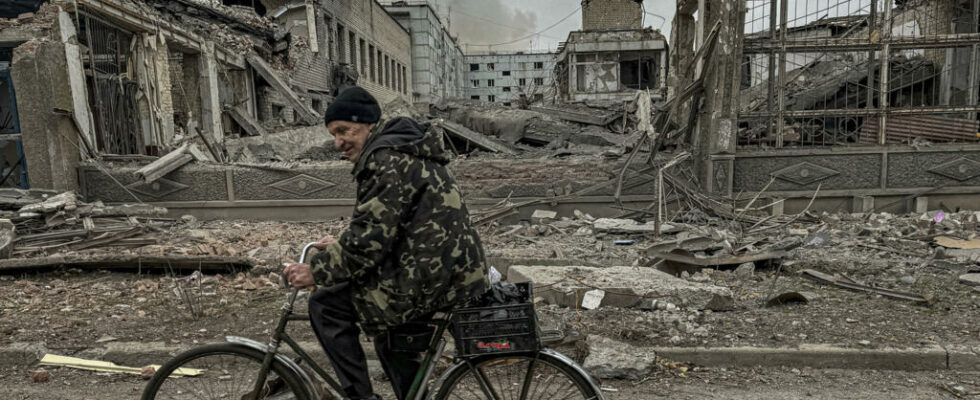In Ukraine, the new Trump presidency raises questions about the country’s future. One month before Donald Trump enters the White House, how are Ukrainians preparing for this presidency?
2 mins
From our correspondent in kyiv,
Concerning the future Trump presidencythere is concern on the part of the Ukrainian population about the formula used by the elected president of wanting to “stop the war in 24 hours”. Although Ukrainians would like to live in peace, the question of a ceasefire and territorial concessions divide society. We went from more than 80% of people refusing all concessions in 2022 to a narrow majority at the end of the year. We feel fatigue on the Ukrainian side, almost three years after the Russian invasion on a large scale.
The Ukrainians were also disappointed by certain American delays and late shipments of promised equipment. Even though they know it is their most important military partner to date, the UNITED STATES have given or promised more than 60 billion in military equipment to theUkraine. There is therefore concern about the continuation of this support and the form that possible negotiations would take under the Trump presidency.
Talks
kyiv continues to advocate for security guarantees, particularly from theNATO. A few days ago, the Minister of Foreign Affairs declared that no security guarantee other than NATO membership would satisfy kyiv. In Brussels this week, Volodymyr Zelensky assured that he did not expect an invitation to join NATO, but that Ukraine would continue to claim this right.
Also readUkraine: EU reaffirms its support for kyiv for a just peace, “not at any price”
He spoke of talks with his allies, including Franceon a possible deployment of European peacekeeping forces in Ukraine. And for him, there is no question of starting negotiations if it means reducing the size of the Ukrainian army. No demilitarization as desired Vladimir Putinsince the latter also threatened to send its experimental hypersonic Oreshnyk missile to kyiv. A diplomatic solution with a positive outcome for Ukraine is difficult to envisage at this stage.
Difficult daily life
In the Donetsk regionscene of Russian advances in recent months, particularly around Pokrovsk, there remain nearly 54,000 inhabitants in active combat zones in the region. Those who can are resigned to fleeing, some stay out of necessity, living in terrible conditions. As the fighting gets closer, civilians lose access to running water, electricity and heating.
Russian artillery and bombs are getting closer and this population is in a state of shock. Internally displaced people met this week are traumatized by the daily explosions, the daily danger from which they escaped and are exhausted by almost three years of war.
